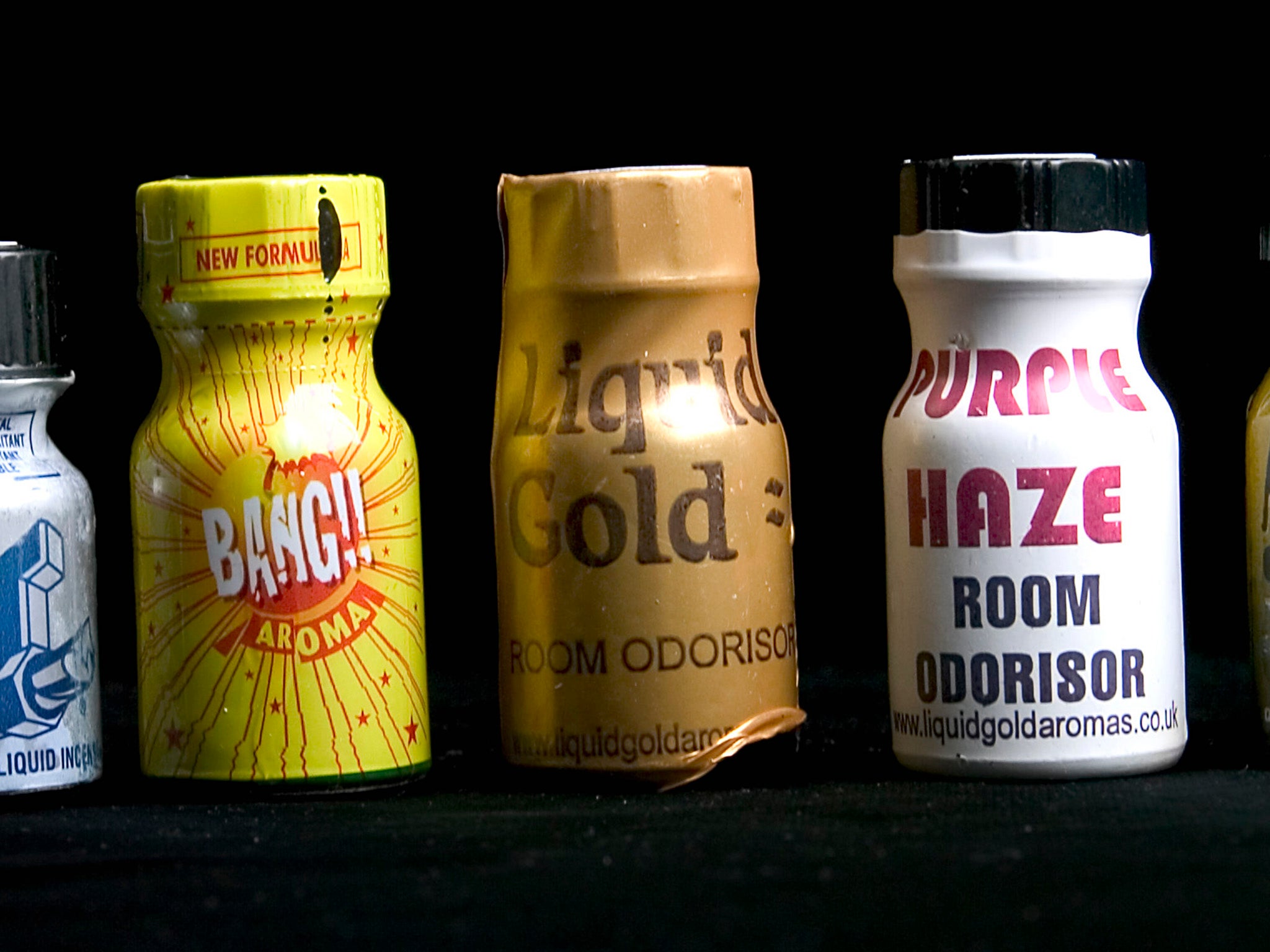Poppers are so harmless and have such limited effects they do not actually fall under the Government’s ban on legal highs, the Government’s top statutory authority on the regulation of drugs has said.
Ministers believed they had banned poppers as part of their Psychoactive Substances Act, but later said they would consider unbanning them after an outcry by parts of the gay community.
The Advisory Council on the Misuse of Drugs however said that despite what ministers believed when they passed the new law, they had not banned poppers.
“The ACMD’s consensus view is that a psychoactive substance has a direct action on the brain and that substances having peripheral effects, such as those caused by alkyl nitrites, do not directly stimulate or depress the central nervous system,” the council said in a report to ministers.
“In the ACMD’s view, alkyl nitrites (“poppers”) do not fall within the scope of the current definition of a “psychoactive substance” in the Psychoactive Substances Act 2016.
“Consequently, the ACMD does not see a need for an exemption under the Psychoactive Substances Act 2016.”
The council also restated its 2011 assessment that Poppers’ “misuse, within the terms of section 1 of the Act, is not seen to be capable of having ‘harmful effects sufficient to constitute a social problem’”.
The Council was commissioned by the Government to look at the substance’s relationship to the Psychoactive Substances Act in February. The ACMD is established in law as the main Government authority on drugs.
In January of this year Home Office minister Mike Penning said that the Government “recognises that representations have been made to the effect that ‘poppers’ have a beneficial health and relationship effect in enabling anal sex for some men who have sex with men, amid concern about the impact of the ban on these men”.
He said the Home Office would consider “whether there is evidence to support these claims and, if so, whether it is sufficient to justify exempting the alkyl nitrites group”.

Both the Home Affairs Select Committee and the Advisory Council on the Misuse of Drugs had previously told the Government the drug should be exempt from the ban.
During a debate in the House of Commons earlier this year Tory MP Crispin Blunt said he believed a proposed ban on the substance would be “manifestly stupid”.
“There are sometimes when something is proposed which becomes personal to you and you realise the government is about to do something fantastically stupid. In those circumstances one has a duty to speak up,” Mr Blunt said.
“I use poppers. I ‘out’ myself as a popper user and would be directly affected by this legislation and I am astonished to find it is proposing to be banned, so would very many other gay men.”
Mr Blunt added that the new rule would “simply serves to bring the whole law into disrepute” and said “it was “manifestly stupid to go down the path we’re going”.
Poppers’ physical effects, which include a short-live high and the loosening of muscles, have been known to improve anal sex. The drugs are not thought to have significant adverse health effects.
The Government brought forward the Psychoactive Substances Act in order to “ban the new generation of psychoactive drugs”.
The new law makes it an offence to produce, supply or possess any substance meant for human consumption that is capable of producing a psychoactive effect.
The Act contains explicit exclusions for food, alcohol, nicotine, caffeine, and medical products.

Join our commenting forum
Join thought-provoking conversations, follow other Independent readers and see their replies
Comments